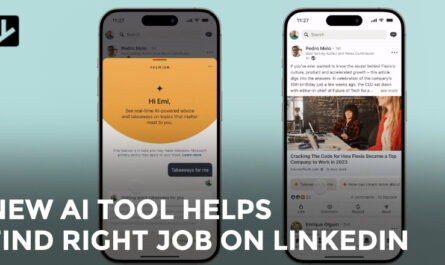Introduction
Artificial Intelligence (AI) is transforming industries, economies, and daily life. It has emerged as a key component of current technological growth. But as it has become widely used, questions about its ramifications have surfaced. Despite its many advantages, integrating AI into many industries presents difficulties and moral conundrums that are frequently disregarded. It is critical to realize that artificial intelligence (AI) contains both enormous threats and advantages in addition to revolutionary prospects.
The discussion surrounding AI goes beyond just its potential applications; it also encompasses the wider implications for the economy, society, and individual rights. Concerns about job displacement, privacy, and decision-making autonomy are cropping up more and more. AI systems are more dangerous as they grow more sophisticated and self-sufficient, which calls for a closer look. This essay seeks to analyze the main drawbacks of AI while providing a thorough understanding of its difficulties.
Top 10 Cons & Disadvantages of Artificial Intelligence (AI)
Investigating the drawbacks of AI requires delving into a number of areas, from the effects on society and the economy to the ethical and technical issues. These drawbacks are theoretical worries that have shown themselves in a variety of ways in various industries. They act as a warning that, despite its potential for greatness, artificial intelligence requires cautious oversight and control.
1. Loss of Privacy
The potential of AI to handle enormous volumes of personal data presents a serious risk to privacy. For instance, AI-powered facial recognition technology is a common feature in surveillance systems across the globe. Without their permission, this technology can track people, stealing their anonymity and limiting their freedom. Due to the extensive use of AI in data analysis, personal data is continuously being gathered and examined, frequently with insufficient security. This breach of privacy raises serious concerns since it may result in the abuse of personal information and a decline in confidence in technology.
2. Dependence on Technology
There is a growing reliance on technology as AI systems are incorporated into everyday life more and more. This reliance may result in a decline in human abilities and discernment. For example, the use of AI for navigation has resulted in a loss of map-reading abilities. Over-reliance on AI diagnoses has the potential to compromise medical practitioners’ knowledge in crucial fields like healthcare. This over-reliance on AI exposes the vulnerabilities of a civilization and begs questions about what happens when these systems malfunction or are unavailable.
3. Ethical and Moral Concerns
There are several moral and ethical questions raised by AI. The development of autonomous weaponry, for instance, presents a serious moral conundrum. These weapons cast doubt on moral responsibility and the usefulness of human judgment in combat since they are able to make life-or-death judgments without the need for human intervention. These moral quandaries are rendered more complex by the ambiguity around accountability for judgments made by AI systems.
4. Job Displacement
The loss of jobs due to AI is one of its biggest drawbacks. Artificial intelligence systems are replacing human workers in more and more tasks as they grow more powerful. Significant employment losses result from this transition, particularly in the manufacturing, customer service, and transportation industries. For example, the implementation of in auto manufacturing has resulted in a reduction of jobs involving manual labor. It is difficult for workers to adjust to this transition since it frequently calls for new abilities that they do not have. Because AI is developing so quickly, jobs are being replaced before the workforce can adjust, creating social and economic problems. This trend affects individual workers and has broader implications for the economy and society, such as increased income inequality and social unrest.
5. Bias and Discrimination
AI systems have the potential to reinforce and magnify preexisting biases because of the training data they use. Discrimination results from this in a number of contexts, including law enforcement and recruitment. The use of AI in recruiting procedures is one prominent example, where it has been discovered that algorithms exhibit racial or gender biases, favoring some groups over others. Biased training data that reflect past prejudices are the root cause of this problem. These kinds of biases in AI systems can have far-reaching effects, fostering social inequality and impeding the development of a more inclusive society.
6. Threats to Security
AI systems are susceptible to hacking and data leaks, among other security threats. The likelihood of devastating cyberattacks rises as AI permeates more vital infrastructure. AI-powered electricity networks, for instance, are vulnerable to hacking, which can jeopardize public safety by causing severe power disruptions. AI systems are complicated and challenging to safeguard, which presents a big problem in a world where connections are becoming more and more intertwined.
7.High Cost
The cost of creating and deploying technology frequently prevents it from being widely used. There could be a digital gap if small companies and developing nations lack the funding to invest. Monopolies may result from the high cost of technology since only big businesses can afford to invest in and profit from these developments. This concentration of resources and power has the potential to impede competition and innovation.
8. Unpredictability and Lack of Control
AI systems are prone to unpredictable behavior, particularly as they grow in complexity. Autonomous vehicles and medical diagnostics are among the important applications that are at danger due to this unpredictability. For instance, unanticipated circumstances that ITwas unable to handle have resulted in accidents involving self-driving automobiles. This unpredictability and lack of control might have disastrous results, which is a big worry.
9. Environmental Impact
AI’s effects on the environment are frequently disregarded. AI systems use a lot of energy since they need a lot of processing power. Training huge models has a significant carbon footprint, which adds to global warming. Furthermore, the necessity for sustainable AI practices is highlighted by the fact that the manufacture and disposal of AI-enabled products contribute to environmental deterioration.
10. Impact on Human Interaction
Human interactions are changing as a result of AI technology, particularly in the form of chatbots and social media algorithms. These tools have the power to propagate false information and build echo chambers, which can affect social dynamics and public opinion.Communication has the potential to reduce in-person contacts as well, which could have an impact on social and emotional intelligence.
Conclusion
Examining AI’s drawbacks shows a convoluted terrain of difficulties and moral conundrums. It is evident that although AI has the ability to completely transform our world, there are also serious concerns associated with it that need to be properly addressed. To tackle these drawbacks, legislators, technologists, and the general public must work together. We can only fully utilize AI’s advantages while reducing its threats if we take a well-rounded and knowledgeable approach.



